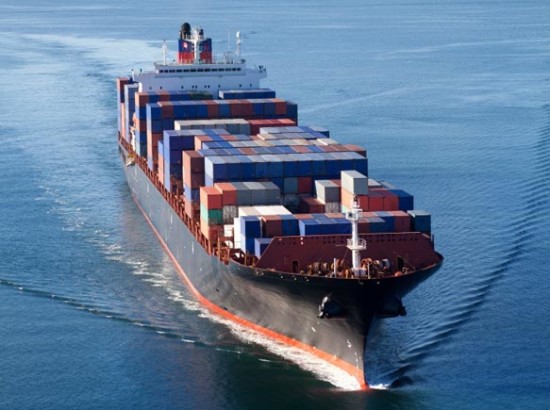The massive supply-demand imbalance in the container shipping industry seen since 2009 is expected to narrow going forward and this could lead to higher freight rates for box shippers, according to shipping analysts.
Container shipping capacity grew 8.5% year on year to 18 million TEUs in 2015 while demand grew just 1%, according to industry analysts.
“For 2016, we expect capacity growth of 2.5% and demand growth of 1.4%,” Rahul Kapoor, director, Drewry Financial Research Services, said Monday.
The demand-supply fundamentals for 2017 looked slightly better as well, he said, adding that companies were cautiously optimistic about volumes rising on the back of global economic growth, lower fuel costs, slowdown in newbuild orders and more scrapping of older ships.
Based on a projected GDP growth of around 2-3% in 2017, global demand for containers will likely grow by 2-4% while supply may increase by around 4-5%, Maersk Line’s Asia Pacific CEO Robbert Van Trooijen said last month at the Global Liner Shipping Conference in Singapore.
Europe’s unemployment rate was falling and consumer demand was expected to grow while in China the government was continuing with structural reforms to sustain the momentum of growth, Trooijen said last month.
Idle capacity is also prompting some owners to scrap ships earlier than usual. The average age of container ships sold for scrap in 2014 and 2015 was around 22 years, according to Vessels Value, a UK-based ships valuation and database company. This year, even 14-year-old post-Panamax container ships have been scrapped.
Most of the demand growth has been in the backhaul routes such as Europe to Asia and the US Westbound Transpacific routes, where, at times, only 50% of the space is occupied. The main front-haul routes are US Eastbound Transpacific and Asia-Europe, where strong demand growth is critical for a turnaround of the container shipping segment.
Some companies are optimistic about volumes rising on the front-haul routes as the economy recovers. This will also likely contribute to better freight rates.
While the global economic outlook is likely to improve but the container shipping industry needs to become profitable to avoid disruptions to the supply chain, Trooijen said at last month’s conference.
The ripple effects of Hanjin’s collapse in South Korea were still being felt by some sections in the shipping industry, he said.
Hanjin Shipping, part of the CKYHE alliance and one of the largest container shipping companies, is now bankrupt. Its bankruptcy impacted its alliance partners causing shipping disruptions and also cast doubts over the benefits of alliances and vessel-sharing arrangements.
Nevertheless, despite the ramifications of Hanjin’s fallout, vessel sharing arrangements are good and will continue, Trooijen said last month.
The formation of such alliances leads to a more efficient supply chain being offered to customers and lesser idle capacity, he said.
The Federal Maritime Commission has recently given its nod for the new Ocean Alliance, which became effective October 24 and will commence operations in April 2017. Carrier members of the Ocean Alliance include Cosco Shipping, CMA CGM, Evergreen Marine, and Orient Overseas Container Line Ltd.
Vessel-sharing arrangements are not new in the shipping industry. They are seen to boost coverage of ports as well as improve efficiency through better utilization of vessel capacity.
Other alliances also exist while some new ones are in the pipeline. The 2M alliance, which at present includes Maersk and Mediterranean Shipping, may rope in South Korea’s Hyundai Merchant Marine by next year following a memorandum of understanding signed in July.
“We realize that HMM has a positive presence in the Pacific trade lane,” said Trooijen last month.
“We don’t comment on rumors or speculation but we have signed an MOU with HMM to join 2M in 2017, and if the conditions of the MOU are in place, this is the plan. I cannot comment on the discussions,” he added.
Source: Platts.
Copyright Ships & Ports Ltd. Permission to use quotations from this article is granted subject to appropriate credit given to www.shipsandports.com.ng as the source.

